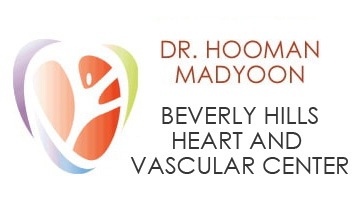It’s a sad fact that modern society really isn’t built with our health in mind. It is no wonder that there are jobs that are bad for your veins. So much of the work that requires a human actor necessitates habits that actively damage our bones, muscles, and cardiovascular systems among other things. However, some jobs are simply worse when it comes to your vein health because they promote stress and sedentary behavior.
Jobs that Are Bad for Your Veins
In regard to the jobs that are most frequently associated with varicose veins and other signs of vein damage, these are the top ten to make the list.
Visit the best Los Angeles cardiologist to learn more about vein health. At our Los Angeles vein center, we provide a range of treatments and therapies to keep you healthy.
Hairdressers
As exhausting as it is for a hairdresser to stay on their feet all day long, it’s even harder on their veins. The fact that they are largely stationary as they care for each client doubled with the fact that gravity encourages blood to pool more in their lower extremities means that hairdressers are at increased risk for varicose veins and other serious conditions.
Teachers
Like hairdressers, teachers have a tendency to stay in one position for an extended period of time. Whether they’re standing at the front of the classroom or sitting at their desk, there are extended periods where circulation is relatively limited, and that can be dangerous.
Retail Workers
If you’re working a sales floor or the backroom, then you’re probably okay. However, the employees working counters, registers, or in the manager’s office have many of the same risk factors as the abovementioned professions. The key is to keep moving as much as you can, so try to find little motions you can do while at work to keep your blood moving smoothly throughout your system to reduce risk.
Bartenders
At this point the pattern is pretty clear. Even the most active bartender is only moving about ten feet behind a bar. If the bar is lively, then you’re probably getting enough movement to take care of your circulation. Still, you can always try to work changes in position into your day to help give your body the chance to circulate your blood normally.
Health Care Professionals
People are always surprised when they learn that health care professionals are considered high risk for so many dangerous conditions. However, many of those jobs are high stress, require heavy lifting, and often necessitate 12-48 hour shifts where there is little variation in position.
Factory Workers
If you work on a factory line, then you are at risk for damage to your veins. On a fast-paced line, it is virtually impossible to give your body the necessary circulation it needs. As a result, you should talk to your doctor about what you should do to maximize your vein health in your off-hours and have regular check-ups to make sure you stay healthy.
Construction Workers
Heavy lifting and long hours on your feet combine for an increased risk of varicose veins and other cardiovascular conditions. Fortunately, many construction workers do get in enough physical activity to balance it out, but if you’re operating heavy equipment this may not be the case for you.
Office Workers
Sitting for too long is just as bad if not worse than standing. When you’re working in front of a computer, it is important to sit in an appropriate posture. You should also get up or switch to standing every 20-30 minutes or so. A quick break to grab a cup of water keeps you hydrated, gives your eyes a rest from the screen, and lets your blood get to all the places it wants to be.
Law Enforcement Personnel
It’s certainly a high-stress job, and the majority of law enforcement personnel sit behind a desk, sit in a car, or stand all day. Unless you’re getting a chance to do a little of all three repeatedly throughout the day, then you should be concerned about your vein health.
Flight Attendants
Flight attendants work crazy hours, expose themselves to the stress of constantly changing elevations/time zones, and spend almost all of their time standing. As with all of the other mentioned professions, it is important to incorporate as much versatile body movement as possible to maintain adequate circulation, especially at 30,000 feet.
What You Can Do
Fortunately, your chosen profession isn’t going to doom you to a life of spider veins and cardiovascular complications, but you do have to be proactive. Try to work as much movement as you reasonably can in during your shifts, take care of yourself on your free time, and visit your local cardiologist for regular check-ups to make sure your veins and heart are in ticking order.

